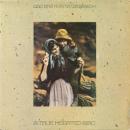You gentlemen and tradesmen that ride about at will,
Look down on these poor people. It's enough to make you crill.
Look down on these poor people, as you ride up and down
I think there is a God above will bring your pride quite down.
You tyrants of England! Your race may soon be run.
You may be brought unto account for what you've sorely done.
You pull down our wages, shamefully to tell.
You go into the markets and say you cannot sell.
And when that we do ask you when these bad times will mend,
You quickly give an answer, "When the wars are at an end."
You tyrants of England! Your race may soon be run.
You may be brought unto account for what you've sorely done.
When we look on our poor children, it grieves our hearts full sore.
Their clothing it is worn to rags, while we can get no more.
With little in their bellies, they to work must go,
Whilst yours do dress as manky as monkeys in a show.
You tyrants of England! Your race may soon be run.
You may be brought unto account for what you've sorely done.
You go to church on Sundays. I'm sure it's naught but pride.
There can be no religion where humanity's thrown aside.
If there be a place in heaven, as there is in the Exchange,
Our poor souls must not come near there. Like lost sheep they must range.
You tyrants of England! Your race may soon be run.
You may be brought unto account for what you've sorely done.
With the choicest of strong dainties, your table's overspread
With good ale and strong brandy, to make your faces red.
You call'd a set of visitors--It is your whole delight--
And you lay your heads together to make our faces white.
You tyrants of England! Your race may soon be run.
You may be brought unto account for what you've sorely done.
You say that Bonyparty he's been the spoil of all,
And that we have got reason to pray for his downfall.
Well, Bonyparty's dead and gone, and it is plainly shown
That we have bigger tyrants in Boneys of our own.
You tyrants of England! Your race may soon be run.
You may be brought unto account for what you've sorely done.
And now, my lads, for to conclude, it's time to make an end,
Let's see if we can form a plan that these bad times may mend.
Then give us our old prices, as we have had before,
And we can live in happiness and rub off the old score.
You tyrants of England! Your race may soon be run.
You may be brought unto account for what you've sorely done.
Look down on these poor people. It's enough to make you crill.
Look down on these poor people, as you ride up and down
I think there is a God above will bring your pride quite down.
You tyrants of England! Your race may soon be run.
You may be brought unto account for what you've sorely done.
You pull down our wages, shamefully to tell.
You go into the markets and say you cannot sell.
And when that we do ask you when these bad times will mend,
You quickly give an answer, "When the wars are at an end."
You tyrants of England! Your race may soon be run.
You may be brought unto account for what you've sorely done.
When we look on our poor children, it grieves our hearts full sore.
Their clothing it is worn to rags, while we can get no more.
With little in their bellies, they to work must go,
Whilst yours do dress as manky as monkeys in a show.
You tyrants of England! Your race may soon be run.
You may be brought unto account for what you've sorely done.
You go to church on Sundays. I'm sure it's naught but pride.
There can be no religion where humanity's thrown aside.
If there be a place in heaven, as there is in the Exchange,
Our poor souls must not come near there. Like lost sheep they must range.
You tyrants of England! Your race may soon be run.
You may be brought unto account for what you've sorely done.
With the choicest of strong dainties, your table's overspread
With good ale and strong brandy, to make your faces red.
You call'd a set of visitors--It is your whole delight--
And you lay your heads together to make our faces white.
You tyrants of England! Your race may soon be run.
You may be brought unto account for what you've sorely done.
You say that Bonyparty he's been the spoil of all,
And that we have got reason to pray for his downfall.
Well, Bonyparty's dead and gone, and it is plainly shown
That we have bigger tyrants in Boneys of our own.
You tyrants of England! Your race may soon be run.
You may be brought unto account for what you've sorely done.
And now, my lads, for to conclude, it's time to make an end,
Let's see if we can form a plan that these bad times may mend.
Then give us our old prices, as we have had before,
And we can live in happiness and rub off the old score.
You tyrants of England! Your race may soon be run.
You may be brought unto account for what you've sorely done.
inviata da Bernart Bartleby - 17/2/2016 - 11:48
×
![]()








Testo scritto da John Grimshaw, tale dei dintorni di Manchester di cui non mi pare ci siano tracce precise nella Rete.
Sicchè l’ho attibuita ad Harry Boardman (1930–1987), folksinger del Lancashire, che nel 1964 la incise (con il titolo “The Hand-Loom Versus The Power-Loom) nel disco collettivo intitolato “New Voices”, con Maureen Craik e The Waterson Family
Sulla melodia della popolare “A-Hunting We Will Go”
The tune here is adapted by Lesley Boardman.
(nota ripresa da Mainly Norfolk: English Folk and Other Good Music)
Una canzone luddista, di quando i capitalisti - forti di tutto il denaro accumulato durante le guerre napoleoniche e consolidato con la Restaurazione, forti delle loro nuove macchine che facevano da sole il lavoro di decine di operai ed operaie e che facevano così crollare i salari - non avevano nessuno a contrastarli e facevano il bello e il cattivo tempo, determinando il destino di interi popoli.
Ed erano – non a caso - i decenni in cui un poveraccio che rubava un tozzo di pane per sfamare i figli rischiava di essere condannato a morte o, più spesso, ai bagni penali nelle colonie in Australia e Nuova Zelanda. Un progetto studiato nei minimi dettagli: sfoltire i pezzenti impoveriti in casa propria, sfruttare a sangue chi non si ribella e, se appena uno alza la testa e protesta, spedirlo a produrre nuova ricchezza nelle nuove terre.